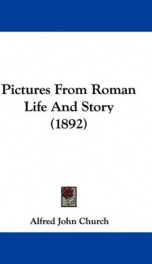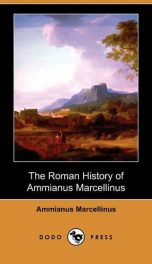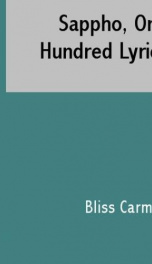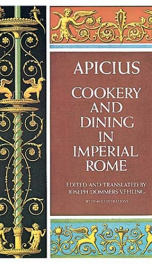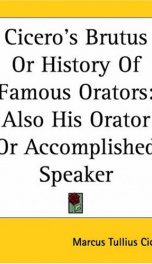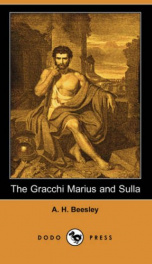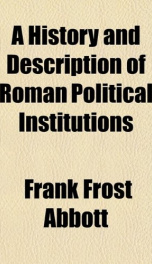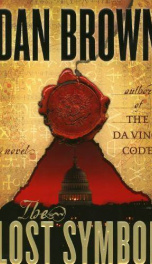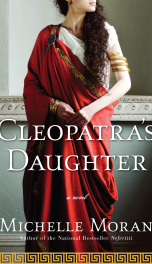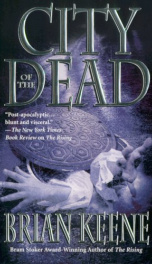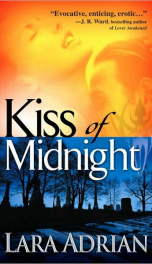Church Alfred John

Homer (Ancient Greek: Ὅμηρος, Hómēros) is a legendary ancient Greek epic poet, traditionally said to be the author of the epic poems the Iliad and the Odyssey. The ancient Greeks generally believed that Homer was a historical individual, but modern scholars are skeptical: no reliable biographical information has been handed down from classical antiquity,[1] and the poems themselves manifestly represent the culmination of many centuries of oral story-telling and a well-developed "formulaic" system of poetic composition. According to Martin West, "Homer" is "not the name of a historical poet, but a fictitious or constructed name."[2] The date of Homer's existence was controversial in antiquity and is no less so today. Herodotus said that Homer lived 400 years before his own time, which would place him at around 850 BC;[3] but other ancient sources gave dates much closer to the supposed time of the Trojan War.[4] The date of the Trojan War was given as 1194–1184 BC by Eratosthenes, who strove to establish a scientific chronology of events and this date is gaining support because of recent archaeological research. For modern scholarship, "the date of Homer" refers to the date of the poems' conception as much as to the lifetime of an individual. The scholarly consensus is that "the Iliad and the Odyssey date from the extreme end of the 9th century BC or from the 8th, the Iliad being anterior to the Odyssey, perhaps by some decades",[5] i.e., somewhat earlier than Hesiod,[6] and that the Iliad is the oldest work of western literature. Over the past few decades, some scholars have argued for a 7th-century date. Those who believe that the Homeric poems developed gradually over a long period of time, however, generally give a later date for the poems: according to Gregory Nagy, they became fixed texts in only the 6th century.[7] Alfred Heubeck states that the formative influence of the works of Homer in shaping and influencing the whole development of Greek culture was recognised by many Greeks themselves, who considered him to be their instructor.[8] Although "Homer" is a Greek name, attested in Aeolic-speaking areas,[9] nothing definite is known of him; yet rich traditions grew up, or were conserved, purporting to give details of his birthplace and background. Many of them were purely fantastical: the satirist Lucian, in his fabulous True History, makes him out to be a Babylonian called Tigranes, who assumed the name Homer only when taken "hostage" (homeros) by the Greeks.[10] When the Emperor Hadrian asked the Oracle at Delphi who Homer really was, the Pythia proclaimed that he was Ithacan, the son of Epikaste and Telemachus, from the Odyssey.[11] These stories proliferated and were incorporated into a number[12] of Lives of Homer compiled from the Alexandrian period onwards.[13] The most common version has Homer born in the Ionian region of Asia Minor, at Smyrna, or on the island of Chios, and dying on the Cycladic island of Ios.[13][14] A connection with Smyrna seems to be alluded to in a legend that his original name was "Melesigenes" ("born of Meles", a river which flowed by that city), and of the nymph Kretheis. Internal evidence from the poems gives some support to this connection: familiarity with the topography of this area of Asia Minor's littoral obtrudes in place-names and details, and similes evocative of local scenery: the meadow birds at the mouth of the Caystros (Iliad 2.459ff.), a storm in the Icarian sea (Iliad 2.144ff.), and wind-lore (Iliad 2.394ff: 4.422ff: 9.5),[15] or that women of either Maeonia or Caria stain ivory with scarlet (Iliad 4.142).[16] The association with Chios dates back at least to Semonides of Amorgos who cited a famous line in the Iliad (6.146) as by "the man of Chios". Some kind of eponymous bardic guild, known as the Homeridae (sons of Homer), or Homeristae ('Homerizers')[17] appears to have existed there, variously tracing descent from an imaginary ancestor of that name,[18] or vaunting their special function as rhapsodes or "lay-stitchers" specialising in the recitation of Homeric poetry. The poet's name is homophonous with "homêros", meaning, generally, "hostage" (or "surety"), long understood as "he who accompanies; he who is forced to follow", or, in some dialects, "blind".[19] The assonance itself generated many tales relating the person to the functions of a hostage or of a blind man. In regard to the latter, traditions holding that he was blind may have arisen from the meaning of the word both in Ionic, where the verbal form "hómêreuô" has the specialized meaning of "guide the blind",[20] and in the Aeolian dialect of Cyme, where homêros was synonymous with standard Greek tuphlós, meaning 'blind'.[21] The characterization of Homer as a blind bard goes back to some verses in the Delian Hymn to Apollo, the third of the Homeric Hymns,[22] verses later cited to support this notion by Thucydides.[23] The Cumean historian Ephorus held the same view, and the idea gained support in antiquity on the strength of a false etymology deriving his name from ho mê horôn (ὁ μὴ ὁρών: "he who does not see"). Critics have long taken as self-referential[24] a passage in the Odyssey describing a blind bard, Demodocus, in the court of the Phaeacian king, who recounts stories of Troy to the shipwrecked Odysseus.[25] Many scholars take the name of the poet to be indicative of a generic function. Gregory Nagy takes it to mean "he who fits (the Song) together".[26] "Hómêréô", another related verb, besides signifying "meet", can mean "(sing) in accord/tune".[27] Some argue that "Homer" may have meant "he who puts the voice in tune" with dancing.[28][29] Marcello Durante links "Homeros" to an epithet of Zeus as "god of the assemblies" and argues that behind the name lies the echo of an archaic word for "reunion", similar to the later Panegyris, denoting a formal assembly of competing minstrels.[30][31] The Ancient Lives depict Homer as a wandering minstrel, much like Thamyris[32] or Hesiod, who walked as far as Chalkis to sing at the funeral games of Amphidamas.[33] We are given the image of a "blind, begging singer who hangs around with little people: shoemakers, fisherman, potters, sailors, elderly men in the gathering places of harbour towns".[34] The poems themselves give evidence of singers at the courts of the nobility. Scholars are divided as to which category, if any, the court singer or the wandering minstrel, the historic "Homer" belonged.[35] The Greeks of the sixth and early fifth centuries understood by "Homer", generally, "the whole body of heroic tradition as embodied in hexameter verse".[36] Thus, in addition to the Iliad and the Odyssey, there are "exceptional" epics which organize their respective themes on a "massive scale".[37] Many other works were credited to Homer in antiquity, including the entire Epic Cycle. The genre included further poems on the Trojan War, such as the Little Iliad, the Nostoi, the Cypria, and the Epigoni, as well as the Theban poems about Oedipus and his sons. Other works, such as the corpus of Homeric Hymns, the comic mini-epic Batrachomyomachia ("The Frog-Mouse War"), and the Margites were also attributed to him, but this is now believed to be unlikely. Two other poems, the Capture of Oechalia and the Phocais were also assigned Homeric authorship, but the question of the identities of the authors of these various texts is even more problematic than that of the authorship of the two major epics. The idea that Homer was responsible for just the two outstanding epics, the Iliad and the Odyssey, did not win consensus until 350 BC.[38] While many find it unlikely that both epics were composed by the same person, others argue that the stylistic similarities are too consistent to support the theory of multiple authorship. One view which attempts to bridge the differences holds that the Iliad was composed by "Homer" in his maturity, while the Odyssey was a work of his old age. The Batrachomyomachia, Homeric Hymns and cyclic epics are generally agreed to be later than the Iliad and the Odyssey. Most scholars agree that the Iliad and Odyssey underwent a process of standardisation and refinement out of older material beginning in the 8th century BC. An important role in this standardisation appears to have been played by the Athenian tyrant Hipparchus, who reformed the recitation of Homeric poetry at the Panathenaic festival. Many classicists hold that this reform must have involved the production of a canonical written text. Other scholars still support the idea that Homer was a real person. Since nothing is known about the life of this Homer, the common joke—also recycled in disputes about the authorship of plays ascribed to Shakespeare-has it that the poems "were not written by Homer, but by another man of the same name."[39][40] Samuel Butler argued that a young Sicilian woman wrote the Odyssey (but not the Iliad), an idea further pursued by Robert Graves in his novel Homer's Daughter and Andrew Dalby in Rediscovering Homer.[41] Independent of the question of single authorship is the near-universal agreement, after the work of Milman Parry,[42] that the Homeric poems are dependent on an oral tradition, a generations-old technique that was the collective inheritance of many singer-poets (aoidoi). An analysis of the structure and vocabulary of the Iliad and Odyssey shows that the poems contain many formulaic phrases typical of extempore epic traditions; even entire verses are at times repeated. Parry and his student Albert Lord pointed out that such elaborate oral tradition, foreign to today's literate cultures, is typical of epic poetry in a predominantly oral cultural milieu, the key words being "oral" and "traditional". Parry started with "traditional": the repetitive chunks of language, he said, were inherited by the singer-poet from his predecessors, and were useful to him in composition. Parry called these repetitive chunks "formulas". Exactly when these poems would have taken on a fixed written form is subject to debate. The traditional solution is the "transcription hypothesis", wherein a non-literate "Homer" dictates his poem to a literate scribe between the 8th and 6th centuries. The Greek alphabet was introduced in the early 8th century, so it is possible that Homer himself was of the first generation of authors who were also literate. The classicist Barry B. Powell suggests that the Greek Alphabet was invented c. 800 BC by one man, probably Homer, in order to write down oral epic poetry [43]. More radical Homerists like Gregory Nagy contend that a canonical text of the Homeric poems as "scripture" did not exist until the Hellenistic period (3rd to 1st century BCE).
do you like this author?
What readers are saying
What do you think? Write your own comment on this book!
write a commentWhat readers are saying
What do you think? Write your own comment on this author!
write a commentBook list

stories of charlemagne and the twelve peers of france from the old romances
Series:
Unknown
Year:
Unknown
Raiting:
1/5
The stories form old French and English chronicles tell of the deeds of the King of the Franks from 768 and Holy Emperor of the Romans from 800 to his death, the Great Charlemagne. The author aimed to present not a history, but Romance about a very great personality.
Show more
add to favoritesadd In favorites

stories from virgil
Series:
Unknown
Year:
Unknown
Raiting:
4.5/5
1886. With 24 illustrations from Pinelli's Designs. Contents: The Horse of Wood; The Sack of Troy; Aeneas and Anchises; Polydorus-Delos-Crete The Harpies; King Helenus-The Cyclops; The Shipwreck; Carthage; Dido; The Love and Death of Dido; The Funeral Games of Anchises; The Burning of the Ships-The Voyage to Italy; The Sibyl; The Dwellings of the Dead; King Latinus; The Wrath of Juno; The Gathering of the Chiefs; King Evander; The Arms of Aeneas; Nisus and Euryalus; The Battle at Camp; The Battle on the Shore; The Council; The Battle at the City; The Broken Treaty; and The Death of Turnus. See other titles by this author available from Kessinger Publishing. --This text refers to an alternate Paperback edition.
Show more
add to favoritesadd In favorites

stories from the greek comedians aristophanes philemon diphilus menander a
Series:
Unknown
Year:
Unknown
Raiting:
4.5/5
Show more
add to favoritesadd In favorites
Book list

stories of charlemagne and the twelve peers of france from the old romances
Series:
Unknown
Year:
Unknown
Raiting:
1/5
The stories form old French and English chronicles tell of the deeds of the King of the Franks from 768 and Holy Emperor of the Romans from 800 to his death, the Great Charlemagne. The author aimed to present not a history, but Romance about a very great personality.
Show more
add to favoritesadd In favorites

stories from virgil
Series:
Unknown
Year:
Unknown
Raiting:
4.5/5
1886. With 24 illustrations from Pinelli's Designs. Contents: The Horse of Wood; The Sack of Troy; Aeneas and Anchises; Polydorus-Delos-Crete The Harpies; King Helenus-The Cyclops; The Shipwreck; Carthage; Dido; The Love and Death of Dido; The Funeral Games of Anchises; The Burning of the Ships-The Voyage to Italy; The Sibyl; The Dwellings of the Dead; King Latinus; The Wrath of Juno; The Gathering of the Chiefs; King Evander; The Arms of Aeneas; Nisus and Euryalus; The Battle at Camp; The Battle on the Shore; The Council; The Battle at the City; The Broken Treaty; and The Death of Turnus. See other titles by this author available from Kessinger Publishing. --This text refers to an alternate Paperback edition.
Show more
add to favoritesadd In favorites

stories from the greek comedians aristophanes philemon diphilus menander a
Series:
Unknown
Year:
Unknown
Raiting:
4.5/5
Show more
add to favoritesadd In favorites
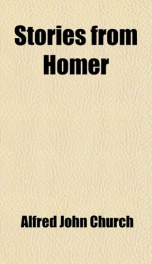
stories from homer
Series:
Unknown
Year:
Unknown
Raiting:
4.5/5
The author is known chiefly for his popularizations of the classics.Timeless tales and legends of Odysseus, Achilles and Trojan War and many others adapted for young readers by Alfred John Church, an English classical scholar of the 19th-20th centuries.
The aim of the volume, which it successfully copes with, is to arouse children’s interest in the beginnings of literature.
Show more
add to favoritesadd In favorites
The aim of the volume, which it successfully copes with, is to arouse children’s interest in the beginnings of literature.
Show more
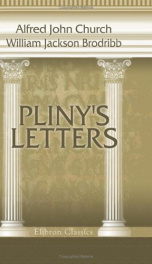
plinys letters
Series:
Unknown
Year:
Unknown
Raiting:
5/5
This Elibron Classics book is a facsimile reprint of a 1872 edition by William Blackwood and Sons, Edinburgh and London.
Show more
add to favoritesadd In favorites

ovid
Series:
Unknown
Year:
Unknown
Raiting:
4/5
Purchase of this book includes free trial access to www.million-books.com where you can read more than a million books for free. This is an OCR edition with typos. Excerpt from book: CHAPTER IX. FRAGMENTSLOST POEMSGENERAL OBSERVATIONS. In his ' Art of Love,' Ovid tells his readers that he had written a book on " Cosmetics," which was small in size, but had cost him much pains. Of this book we have remaining a fragment of about a hundred lines. The poet begins by saying that everything is the better for cultivationthe human face of course included. The simple Sabine matrons of old may have been content to spend all their labour on their fields, but the fair ones of modern Home had different tastes. Dresses embroidered with gold, hair richly scented and arranged in various ways, fingers adorned with rings, and ear-rings of pearls, so heavy that two pearls were weight enough for an earsuch were now their tastes. How could they be blamed, for the tastes of men were just the same ? They were quite right in trying to please; only let them please in lawful ways. Drugs and love-potions must be eschewed. Goodness should be their chief charm. The days would come when it would be a pain to look into the mirror; but virtue lasts through life, and the love which attaches itself to it is not lightly lost. After this edifying preface,the poet proceeds to his subject. His instructions are eminently practical in character,giving the ingredients, the proper weight, and the right manner of mixing them. His first recipe is for brightening the complexion. Take two pounds of barley, as much of bitter lupine, and ten eggs; dry and then grind the substance. Add a sixth of a pound of stag's-horns; they must be those shed by the animal for the first time. The mixture is to be passed through a sieve. Twelve narcissus-roots with the rind stripped off are to be pounded in a marble mortar; add the sixth of a pound of gum, and as much spelt, with a pound and a half of honey. " Dr... --This text refers to an alternate Paperback edition.
Show more
add to favoritesadd In favorites
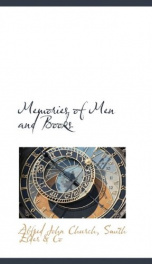
memories of men and books
Series:
Unknown
Year:
Unknown
Raiting:
3/5
Originally published in 1908. This volume from the Cornell University Library's print collections was scanned on an APT BookScan and converted to JPG 2000 format by Kirtas Technologies. All titles scanned cover to cover and pages may include marks notations and other marginalia present in the original volume. --This text refers to the Paperback edition.
Show more
add to favoritesadd In favorites
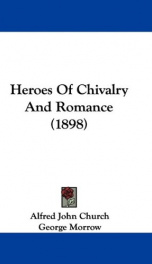
heroes of chivalry and romance
Series:
Unknown
Year:
Unknown
Raiting:
3.5/5
Many of the earliest books, particularly those dating back to the 1900s and before, are now extremely scarce and increasingly expensive. We are republishing these classic works in affordable, high quality, modern editions, using the original text and artwork. --This text refers to an alternate Paperback edition.
Show more
add to favoritesadd In favorites
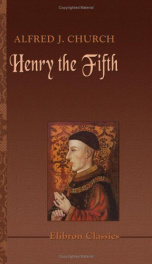
henry the fifth
Series:
Unknown
Year:
Unknown
Raiting:
3.5/5
This Elibron Classics book is a facsimile reprint of a 1889 edition by Macmillan and Co., London and New York.
Show more
add to favoritesadd In favorites

early britain
Series:
Unknown
Year:
Unknown
Raiting:
3.5/5
This volume is produced from digital images created through the University of Michigan University Library's large-scale digitization efforts. The Library seeks to preserve the intellectual content of items in a manner that facilitates and promotes a variety of uses. The digital reformatting process results in an electronic version of the original text that can be both accessed online and used to create new print copies. The Library also understands and values the usefulness of print and makes reprints available to the public whenever possible. This book and hundreds of thousands of others can be found in the HathiTrust, an archive of the digitized collections of many great research libraries. For access to the University of Michigan Library's digital collections, please see http://www.lib.umich.edu and for information about the HathiTrust, please visit http://www.hathitrust.org
Show more
add to favoritesadd In favorites

carthage or the empire of africa
Series:
Unknown
Year:
Unknown
Raiting:
3/5
Many of the earliest books, particularly those dating back to the 1900s and before, are now extremely scarce and increasingly expensive. We are republishing these classic works in affordable, high quality, modern editions, using the original text and artwork. --This text refers to an alternate Paperback edition.
Show more
add to favoritesadd In favorites

callias a tale of the fall of athens
Series:
Unknown
Year:
Unknown
Raiting:
3.5/5
1891. Church creates this historical fiction with precision. He cleverly writes his own account of the fall of Athens. Adding in any literary necessities to fit with the actual course of events. Partial Contents: A New Play; Arginusae; Socrates; The Voyage of the Skylark; Alcibiades; Pharnabazus; Dionysius. --This text refers to the Paperback edition.
Show more
add to favoritesadd In favorites
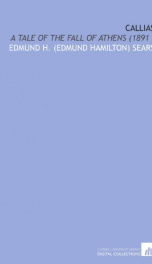
callias
Series:
Unknown
Year:
Unknown
Raiting:
5/5
Originally published in 1891. This volume from the Cornell University Library's print collections was scanned on an APT BookScan and converted to JPG 2000 format by Kirtas Technologies. All titles scanned cover to cover and pages may include marks notations and other marginalia present in the original volume.
Show more
add to favoritesadd In favorites
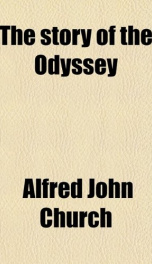
The Story of the Odyssey
Series:
Unknown
Year:
Unknown
Raiting:
4.5/5
This book was converted from its physical edition to the digital format by a community of volunteers. You may find it for free on the web. Purchase of the Kindle edition includes wireless delivery.
Show more
add to favoritesadd In favorites

Stories from the Greek Tragedians
Series:
Unknown
Year:
Unknown
Raiting:
1.5/5
I have added to the "Story of the Seven Chiefs against Thebes" thedescription of the single combat between Eteocles and Polynices, whichoccurs in the _Phoenissae_ of Euripides. Some changes have been made inthe "Story of Ion" to make it more suitable for the purpose of thisbook. Throughout the Stories compression and omission have been freelyused. I can only ask the indulgence of such of my readers as may befamiliar with the great originals of which I have given these pale andineffectual copies.
Show more
add to favoritesadd In favorites
What readers are saying
What do you think? Write your own comment on this author!
write a commentif you like Church Alfred John try:
readers also enjoyed
What readers are saying
What do you think? Write your own comment on this author!
write a commentGenre
if you like Church Alfred John try:
readers also enjoyed
Do you want to exchange books? It’s EASY!
Get registered and find other users who want to give their favourite books to good hands!
